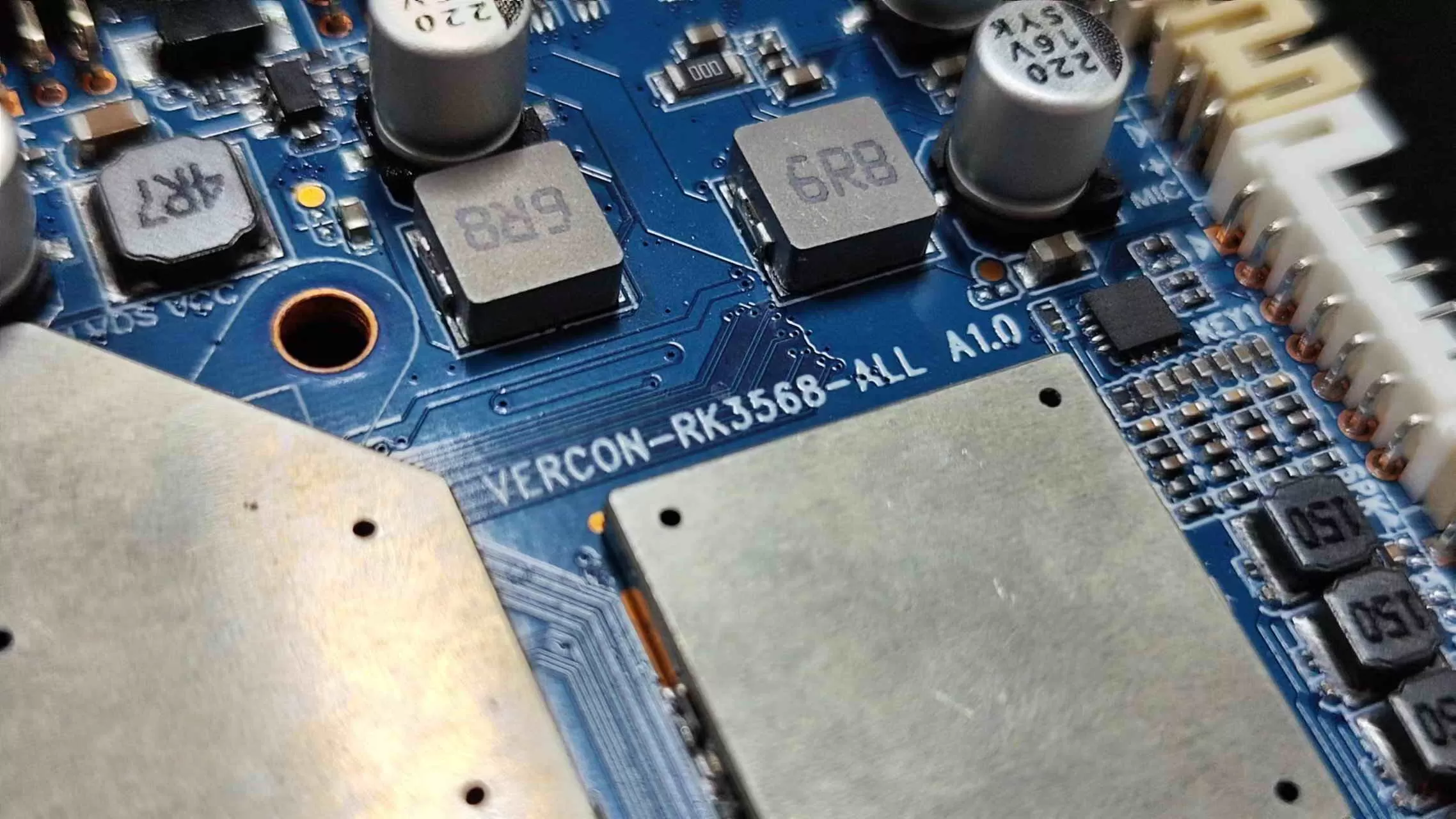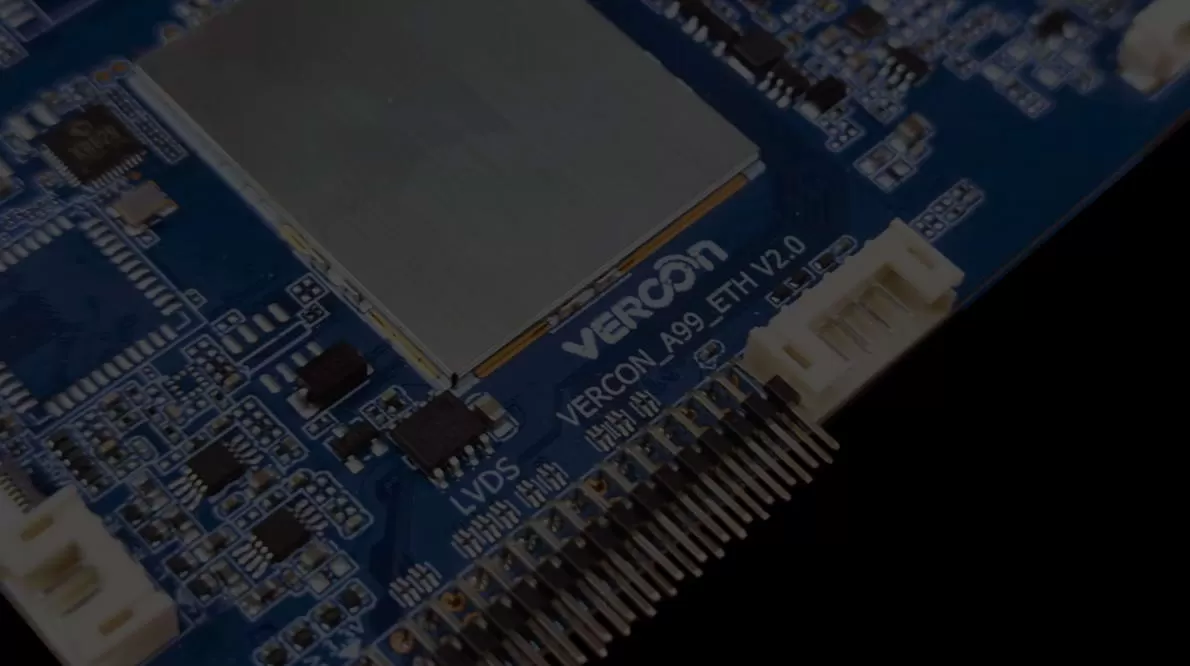As a smart mirror manufacturer, considering providing a better user experience and available volume production, we don’t produce Raspberry Pi smart mirror. We produce and supply out-of-the-box smart mirrors commercial configurated with a dedicated motherboard and Android-based OS.
Out-of-the-box smart mirror produced by Vercon
View Vercon smart mirror factory
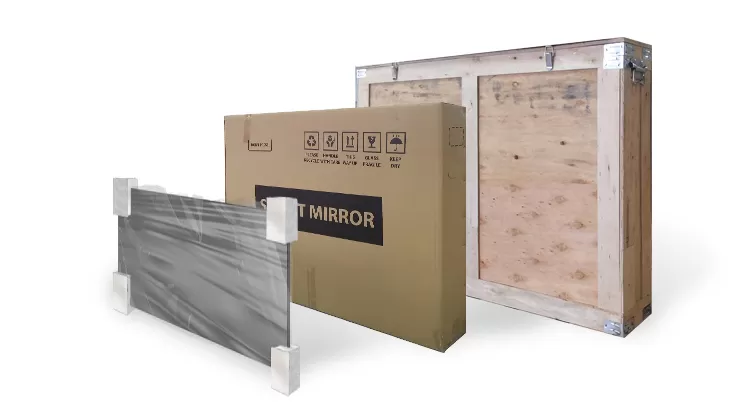
Raspberry Pi is a single-board computer series widely used in learning programming skills and making interesting DIY hardware. It is even being used in some simple industrial control systems. Till now, it was developed to be the 4th generation. Raspberry Pi boards are generally cheap enough as they are basically with minimum hardware configuration.
Some hardware geeks like DIY Raspberry Pi smart mirror:
Some hardware geeks teach people how to DIY a smart mirror with Raspberry Pi in their blogs. Take using Raspberry Pi 4 to build a smart mirror for example, below components will be prepared in advance:
A DIY Raspberry Pi smart mirror
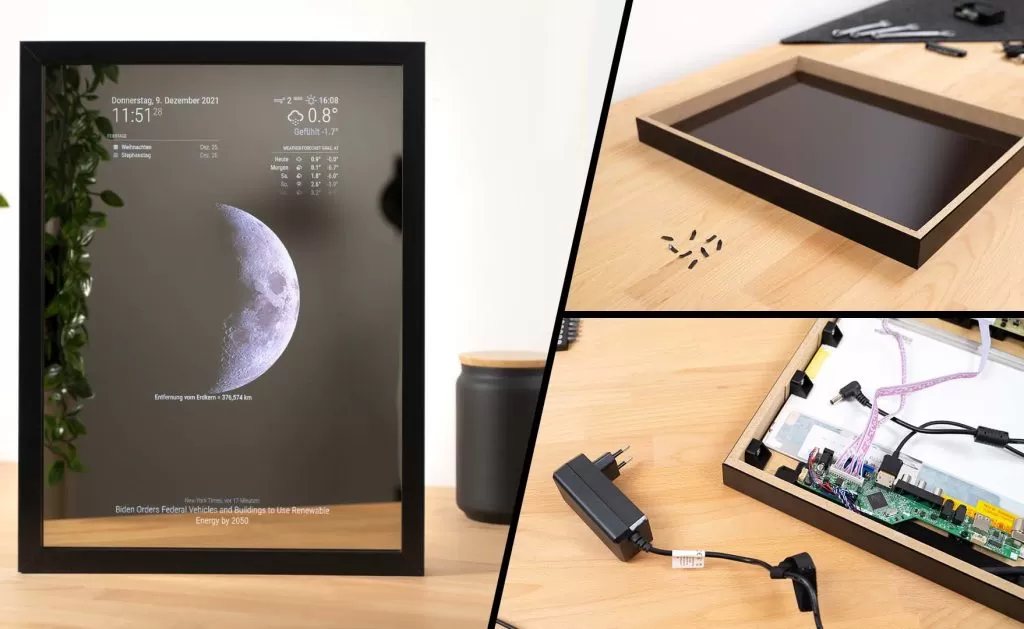
Physical components
– Raspberry Pi board (Raspberry Pi 2 / 3 / 4)
– Power cable for Pi – Board case for Pi
– MicroSD card
– LCD screen compatible with Pi – HDMI cable
– USB keyboard
– Mirror frame
– Two-way mirror
Software
– Raspbian OS
– MagicMirror² program
– Raspberry Pi Imager
Necessary tools
– Mounting brackets for holding the LCD, mirror, and mirror frame
– Tape
– Zip ties
– Glue
– Screws or nails
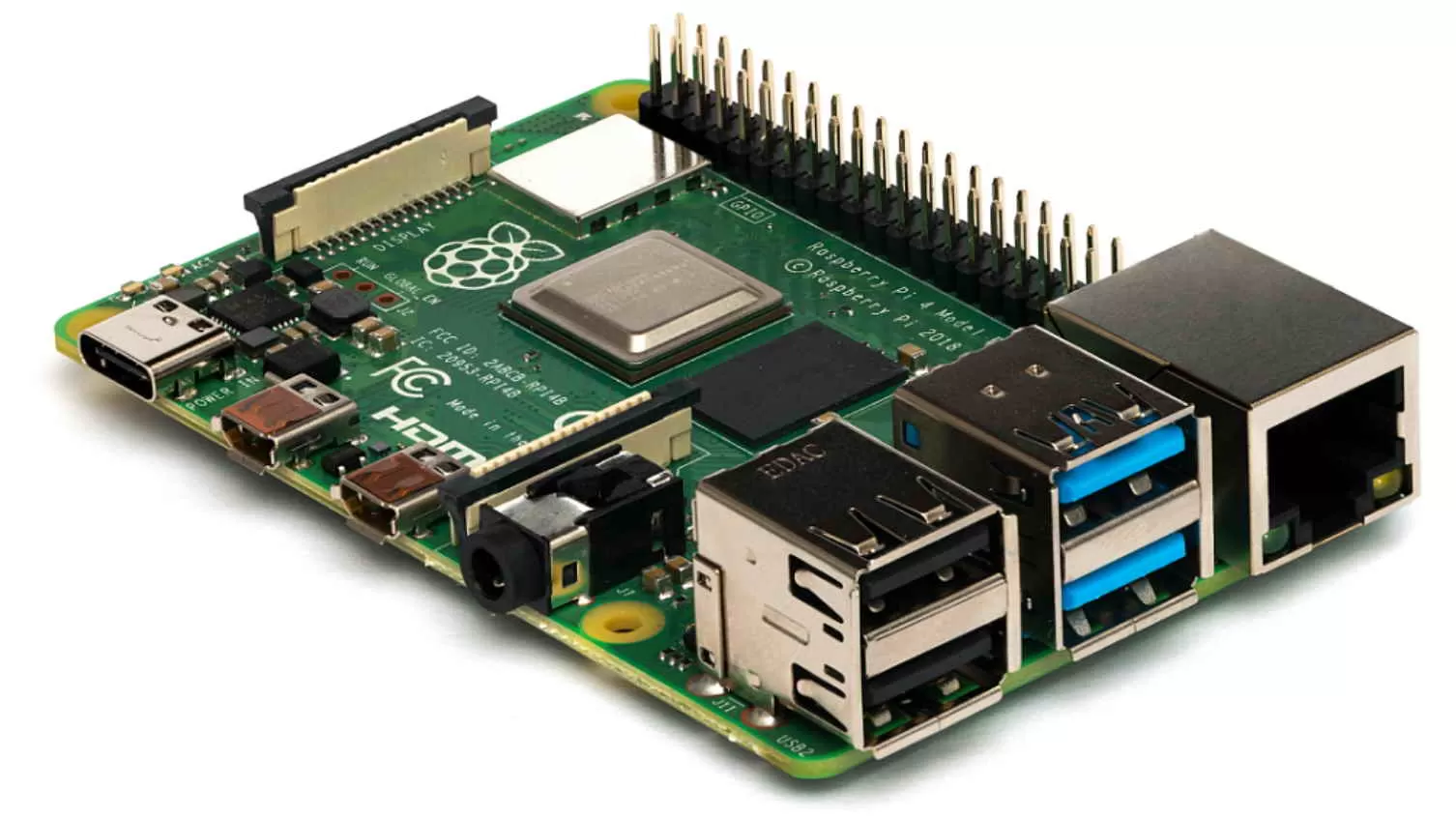
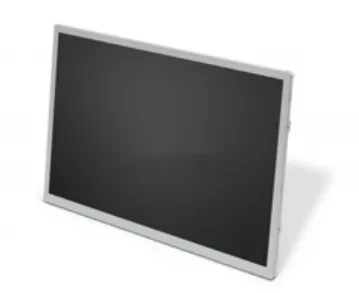
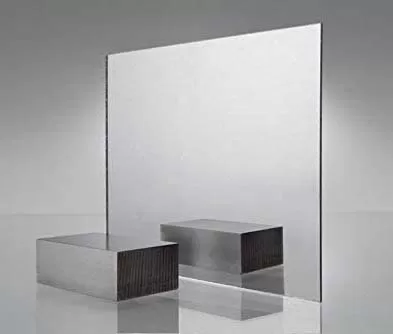
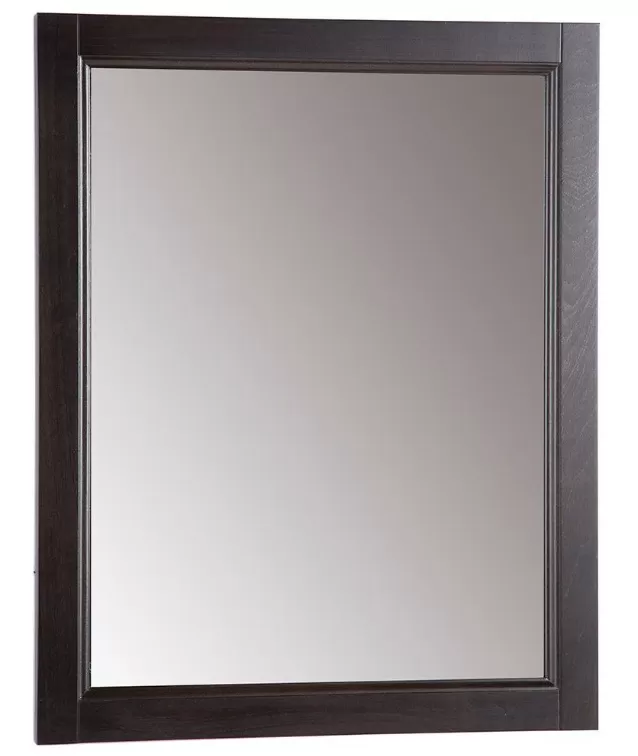
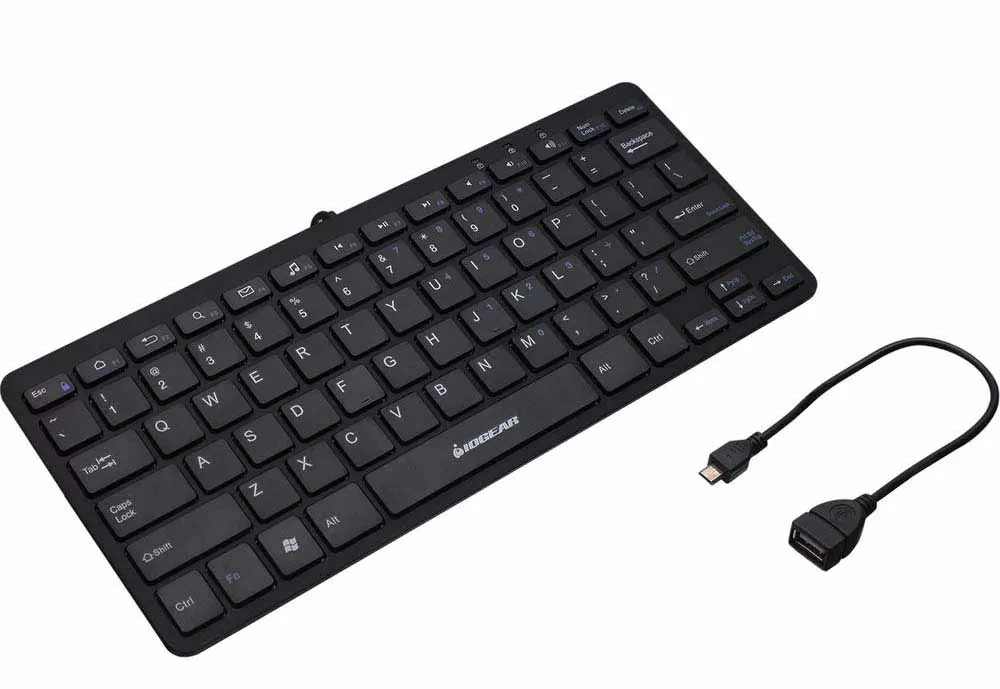
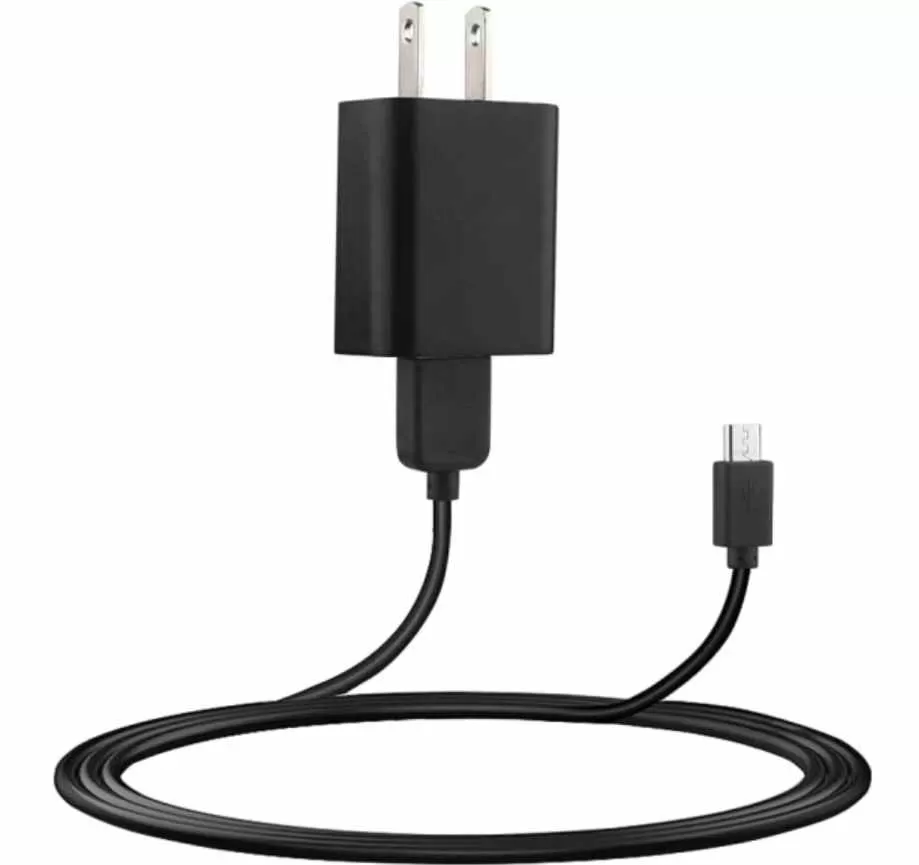
But manufacturers can hardly choose Raspberry Pi for producing smart mirror commercials:
However, even under those DIY guides, it’s not an easy thing for most people to successfully make a functional smart mirror with a Raspberry Pi board and the well-prepared components listed above. Generally, people would cost much more time than expected. Compared to smart mirror commercials from volume production, most DIY are of bad user experience. To smart mirror manufacturers and sellers, Raspberry Pi boards are still far away from bulk production or bulk selling.
Technical analysis from production perspectives:
What are the obstacles to massively producing Raspberry Pi smart mirrors in the factory? As a PMC engineer, I try to make a technical analysis from a production perspective:
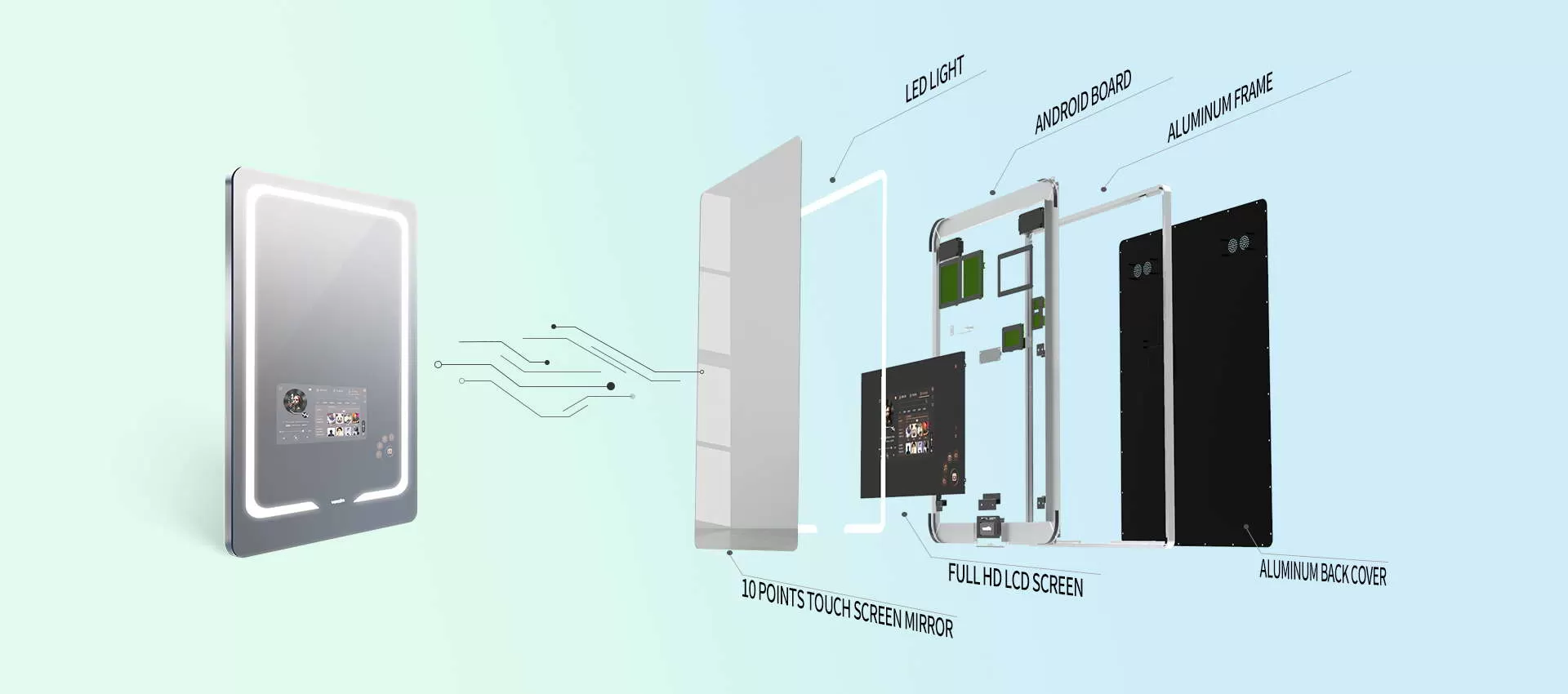
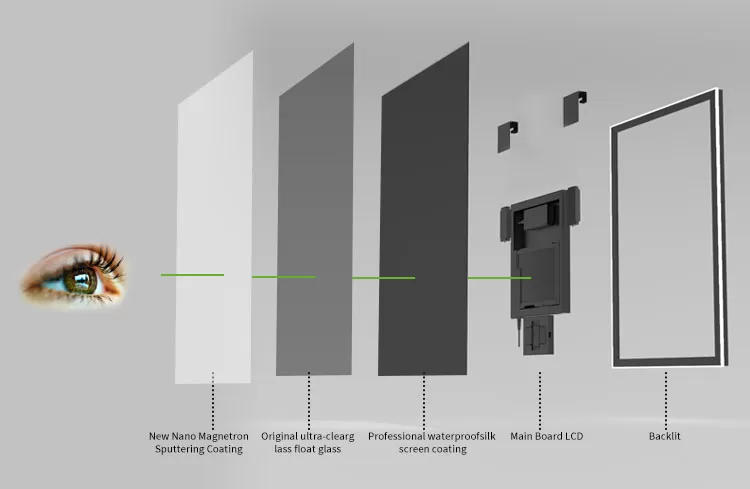
— Sustainability of Production. Raspberry Pi will stop producing the previous generation of the board after releasing the new Raspberry Pi SoC. This will bring an awkward situation to factories that need to keep a stable motherboard supply for sustainable mass production. Comparatively speaking, some mature commercial motherboards like Android RK3288 SoC are much better options for smart mirror factories as it’s in continuous production. And, chipsets like RK3288 / RK3399 / RK3588 are faster than the chipset BCM2711 used in the newest Raspberry Pi 4 SoC.
— Technical Coordination. Strong technical coordination (between factory engineers and Client engineers) is needed for producing it.
— Appearance. Nobody is willing to spend hundreds of dollars to buy a heavy and hulking smart mirror. A smart mirror should be thin and light enough. Obviously, the Raspberry Pi board is too thick. However, a DIY smart mirror with Raspberry Pi is an amazing thing as its making needs plentiful technical skills.
Most motherboards in Vercon smart mirrors are based on Rockchip SoC. The operating system is dedicated to Android-based VEUI OS. It runs fast and smooth in Vercon smart mirrors.
That’s why we don’t produce Raspberry Pi smart mirror but produce specialized smart mirrors. In the article Use Specialized Smart Bathroom Mirror, Avoid Paying For Costly White Elephant, we made another analysis from a wider angle. The content is directed to our bathroom mirror products, but it’s also very helpful to understand the other ones produced by Vercon.
Related content:
